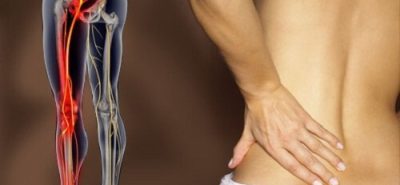Enlarged Prostate or BPH
Last Updated on December 2, 2018
What is BPH?
Benign prostatic hyperplasia is an enlarged prostate gland. It’s a common condition, especially in older men.
BPH isn’t prostate cancer and doesn’t make you more likely to get it.
Treatment options include lifestyle changes, medicine, and surgery.
Symptoms
As the prostate gets larger, it starts to pinch the urethra. This causes symptoms that affect your urine flow, such as:
- Dribbling when you finish
- A hard time getting started
- A weak stream, or you pee in stops and starts
When your urethra is squeezed, it also means your bladder has to work harder to push urine out. Over time, the bladder muscles get weak, which makes it harder for it to empty. This can lead to:
- Feeling like you still have to pee even after you just went
- Having to go too often — eight or more times a day
- Incontinence (when you don’t have control over when you pee)
- An urgent need to pee, all of a sudden
- You wake up several times a night to pee
A larger prostate doesn’t mean you’ll have more or worse symptoms. It’s different for each person. In fact, some men with very large prostates have few, if any, issues.
Basic Tests
Your doctor may start with one or more of these:
- Blood tests to check for kidney problems
- Urine tests to look for infection or other problems that could be causing your symptoms
- PSA (prostate-specific antigen) blood test. High PSA levels may be a sign of a larger-than-usual prostate. A doctor can also order it as screening for prostate cancer.
Medicine
For mild to moderate BPH, your doctor might suggest medicine. Some medications work by relaxing the muscles in your prostate and bladder. Others help shrink your prostate. For some men, it takes a mix of medicines to get the best results.
Lifestyle changes
You may want to start with things you can control. For example, you can:
- Limit beverages in the evening. Don’t drink anything for an hour or two before bedtime to avoid middle-of-the-night trips to the toilet.
- Limit caffeine and alcohol. They can increase urine production, irritate the bladder and worsen symptoms.
- Limit decongestants or antihistamines. These drugs tighten the band of muscles around the urethra that control urine flow, making it harder to urinate.
- Follow a healthy diet. Obesity is associated with enlarged prostate.
- Stay active. Inactivity contributes to urine retention. Even a small amount of exercise can help reduce urinary problems caused by an enlarged prostate.
- Boost your fibre intake to avoid becoming constipated which can aggravate prostate and bladder symptoms
- Quit smoking
Procedures
If lifestyle changes and medications don’t work, your doctor has a number of ways to remove part or all of your prostate. Many of these are called “minimally invasive,” meaning they’re easier on you than regular surgery. They use probes or scopes and don’t require large cuts in your body.
Other, more involved surgical procedures include:
- Laser therapy to remove part of your prostate
- Transurethral resection of the prostate, or TURP, in which the doctor uses a scope and cuts out pieces of the gland with a wire loop
- Transurethral incision of the prostate or TUIP, in which a few small cuts are made in the prostate to reduce the gland’s pressure on the urethra.
- In some cases, your doctor may also suggest a traditional, open surgery or a robotic procedure to remove your prostate.
Recommended Supplement
Read more: Health Benefits Of Nettle Leaf
Reference: https://www.webmd.com/men/prostate-enlargement-bph







Leave a Reply